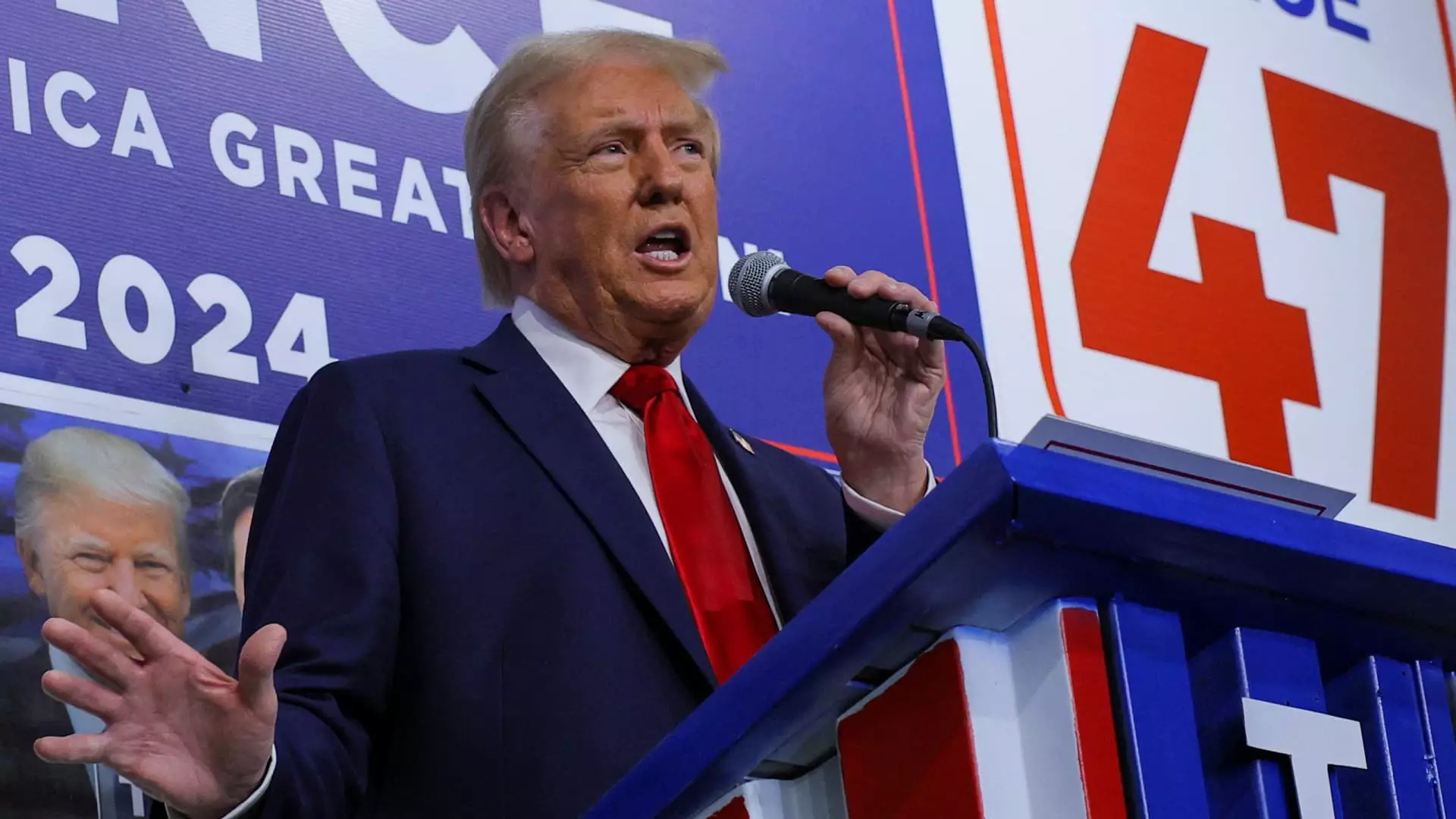In the realm of American politics, universal tariffs have surfaced as a controversial topic, especially within the context of the 2024 presidential campaign. A recent poll by NBC News underscores a significant voter hesitance towards candidates endorsing bold tariff increases, presenting both a challenge and an opportunity for those involved in shaping policy. Despite the fact that former President Donald Trump has staunchly advocated for extensive tariffs as a mechanism to rejuvenate American manufacturing and generate jobs, the polling suggests that a substantial proportion of the electorate harbors reservations about such proposals. This dichotomy between political rhetoric and voter sentiment calls for a deeper examination of the implications of universal tariffs.
The NBC News poll showcases that 44% of registered voters are less inclined to support a candidate promoting tariffs as steep as 20% on imports across the board. In contrast, only 35% express a likelihood of supporting such a candidate, while a minority, 19%, report that it would bear no influence on their voting behavior. The margin of error stands at ±3.1%, emphasizing the delicate nature of public opinion around this issue. Such findings suggest that many Americans remain skeptical of policies that could potentially inflate consumer prices, which would contradict the core goal of stimulating domestic economic growth. The stark reality portrayed by the poll highlights the challenge Biden and other political candidates face when articulating their economic philosophies in a manner that resonates with everyday Americans.
Former President Trump’s push for a hardline tariff approach is characterized by an unwavering belief in its long-term effectiveness to invigorate American manufacturing. He argues that high tariffs would compel companies to establish manufacturing operations within the U.S. as a means to bypass the costs associated with import taxes. In a recent interview, Trump asserts, “The higher the tariff, the more likely it is that the company will come into the United States and build a factory in the United States.” However, criticism levied against such a broad and confrontational strategy is mounting. Economists warn that while tariffs may appear to be effective in reshaping the trade landscape, the immediate reality is that the burden of increased costs inevitably falls on U.S. consumers, potentially reigniting inflation rates that have only begun to stabilize recently.
Interestingly, Trump’s tariffs are not without opposition—even from within his own party. Prominent Republicans, including Senate Minority Leader Mitch McConnell, have voiced their objections, warning that tariffs indiscriminately raise costs for consumers and could inadvertently harm the party’s electoral prospects. Such internal dissent highlights a fracture within the GOP relating to trade policy, wherein some members advocate for more tempered approaches.
In contrast, the Biden-Harris administration has maintained its commitment to a more strategic and targeted tariff implementation, particularly focusing on sectors deemed essential for national interests. Treasury Secretary Janet Yellen clarifies, “We’ve put in place a narrow, carefully targeted set of tariffs in sectors that are strategic, that we’ve made a conscious decision to promote in the United States.” This differentiated approach aims to engage with trade challenges in a focused manner, drawing a fine line between protectionist measures and a sustainable, economically sound strategy.
As the 2024 presidential campaign unfolds, understanding voter sentiment around tariffs will be paramount for candidates across the political spectrum. The polarized views surrounding universal tariffs can substantially shape campaign strategies and voter outreach efforts. Candidates who find themselves favoring broad tariffs must navigate a cautious path, balancing the allure of domestic job creation against the very real economic concerns of inflation and consumer expenses. Conversely, those who advocate for targeted, nuanced trade policies may find an opportunity to connect with a voter base that desires stability and economic security.
Ultimately, the conversation surrounding tariffs is emblematic of a broader economic narrative that prioritizes American stability in a complex global marketplace. Candidates’ ability to articulate graceful solutions to these challenges will likely define their appeal to voters as they seek to resonate with an electorate that is far more nuanced in its economic concerns than hardline proposals might suggest.


Leave a Reply